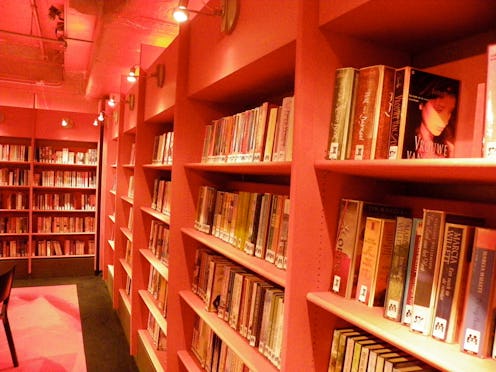
I left my research career in the pharmaceutical industry to write romance novels.
This is my spiel now, and I’ve heard a lot of great responses to it, but my favorite might be the one delivered at my son’s soccer game. “Oh, how wonderful!” a grandmother of a teammate said, clapping. “Are they formulaic? I simply love trashy books!” I enjoyed that she claimed to love them, but the assumption that romance is, by default, “trashy” left me struggling for a reply that wouldn't draw blood.
This conversation isn’t a new one. Society has often viewed romance as below other literary work. Smart, educated, opinionated, empowered women reading and writing romance are beginning to rebrand the genre as one with more heft, but still the refrain remains, “put down the books — and pick up reality.”
For 18 years, my life was neuroscience research on neurodegeneration. I'm a relatively goofy person, and upon hearing what I did for a living, many people seemed to view me differently — with surprise first, and then, respect. But I’ve always loved to write for fun — fanfic, stories for myself, and, eventually, actual books with my coauthor, Christina. Between February and November 2013, we released six New York Times bestsellers, all while working full time in our “more serious” careers. I honestly couldn’t do both anymore, and — after much hand-wringing deliberation — I chose the career that made me spring from bed and dance to the coffee machine every morning.
But with this switch, I was made more aware of a not uncommon perspective on my writing: namely that by writing romance novels, I am somehow less culturally relevant, less interesting, and more self-indulgent than when I had a “meaningful job” in the science fields. This isn’t paranoid defensiveness — no, these are things I’ve heard from former colleagues, or people who simply don’t realize the impact of romance novels can have on the broader world.
In book publishing, romance holds an important place — as the biggest genre in fiction, it is a major pillar in what keeps the industry afloat. In 2014 alone, romance earned an estimated $1.44 billion — nearly double the next highest grossing genre (crime/mystery). Millions of readers are devouring many, many “kissing books.” With this kind of dominance in the market, it’s no wonder I’m set off by snarky comments reducing romance readers and novelists as porn-peddlers just sitting around eating chips out of the bag and fapping to Fabio fantasies.
It begs the question why romance is slow to be discussed in the noble rooms of academic study. As someone who spent many years in academia, this one still pricks at me, and I’m grateful for the renewed interest in the discourse, because this conversation has never been resolved: If this is a genre selling more than any other in the world, doesn't it stand to reason that it may also reflect cultural shifts as a whole?
It used to be the case that romance options were fairly limited in scope. But lately, mainstream romance draws deeply from the smaller pockets of writing communities found online. Because of fanfiction, the burst of indie self-publishing beginning around 2010, and people writing for the pure joy of rolling tropes and culture issues around in their palms, romance is no longer limited to what traditional publishers predict will work — a new type of romance seems to be taking hold, led from the bottom up.
The voices in this genre are busy telling the world what matters to women. Yes, we care about career, work-life balance, respect — obviously critically important things. But what if, the authors of these books are beginning to ask with their themes, we take those things as given and then ask for more: to be seen as sexual creatures who are in no way delicate, who come in every flavor and color, who like people, actions, or genders society tells them they ought not to? I even predict that within a couple of years we will see LGBTQIA romance alongside M/F romance in major retailers.
Romance novels may not directly influence the global political sphere in the way that, say, nonfiction can, but they can influence how people treat each other, how we define love, how we accept others who are broken in ways maybe we aren't, who express themselves in ways we once considered deviant. These are the things that bind a society, and romance novels — books about relationships and reflection — can lead enormous groups of people into places they never thought to imagine.
That's interesting. That's incredible. That's something worth singing from the rooftops. And if acceptance of new modes of relationships is “trashy,” then I've never been happier or more culturally relevant.
P.S. This would be a good time to tell you Christina Lauren just released a new book called Beautiful Secret — come grab it if you want into our world!
Image: Ellen Forsyth/flickr